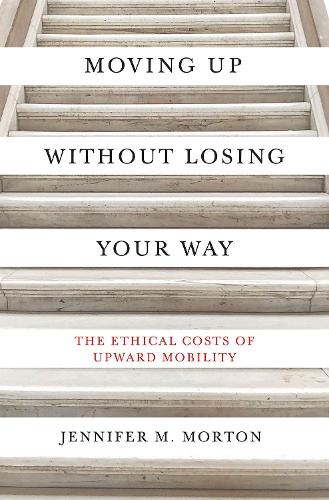
Moving Up without Losing Your Way: The Ethical Costs of Upward Mobility
(Hardback)
Available Formats
Publishing Details
Moving Up without Losing Your Way: The Ethical Costs of Upward Mobility
By (Author) Jennifer M. Morton
Princeton University Press
Princeton University Press
25th November 2019
United States
Classifications
Tertiary Education
Non Fiction
Philosophy and theory of education
Ethics and moral philosophy
Social and political philosophy
Social classes
177
Physical Properties
Hardback
192
Width 140mm, Height 216mm
Description
The ethical and emotional tolls paid by disadvantaged college students seeking upward mobility and what educators can do to help these students flourish Upward mobility through the path of higher education has been an article of faith for generations of working-class, low-income, and immigrant college students. While we know this path usually en
Reviews
"Winner of the Frederic W. Ness Book Award, Association of American Colleges and Universities"
"Winner of the Grawemeyer Award in Education"
"For those of us who work with strivers. . . . Moving Up Without Losing Your Way provides an empathetic and clear-eyed analysis of the difficult choices they must make, and the costs of those choices to both themselves and their communities."---James M. Lang, Chronicle of Higher Education
"This important and accessible study demonstrates the value of ethical analyses to understand these issues, aimed at strivers, their families, their communities, and the entire higher education community." * Choice *
"Morton is not the first person to describe the myths and ordeals of upward mobility. Nor is she the first to call attention to this group of striving students. But where Morton differsand meaningfully contributesis in her perspective as a philosopher."---Shaun Ossei-Owusu, Public Books
"Morton makes her main argument through an astute and very accessible philosophical analysis. . . . Mortons book is valuable because it not only focuses on the ethical costs of social mobility but also hints at solutions."---Helen De Cruz, The Philosphers Magazine
"A good guide to a road not yet well-enough traveled but increasingly important if higher education is to better serve more of the students coming its way."---Mary Taylor Huber, Change: The Magazine of Higher Learning
"Compelling and momentous. . . . Mortons book occasions a critical reflection for strivers, educators, administrators in higher education, and for anyone who wishes to better understand and support strivers they know."---Vikramaditya Joshi, Studies in Philosophy and Education
Author Bio
Jennifer M. Morton is associate professor of philosophy at the City College of New York and the Graduate Center, CUNY and senior fellow at the Center for Ethics and Education at the University of WisconsinMadison.
